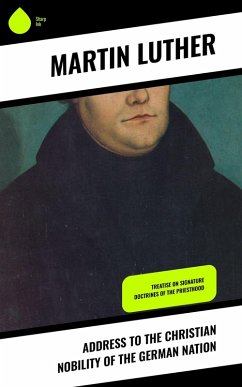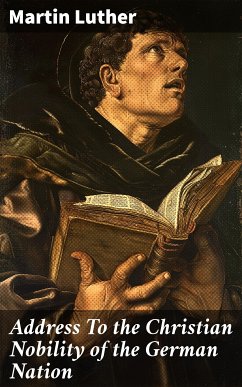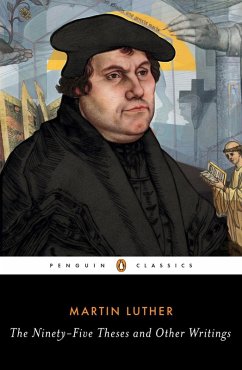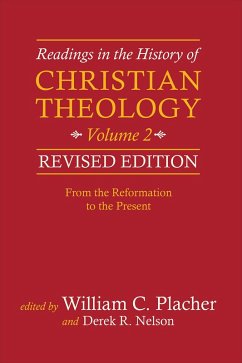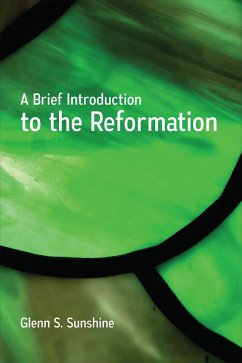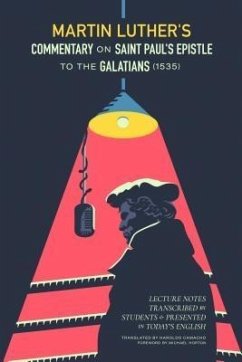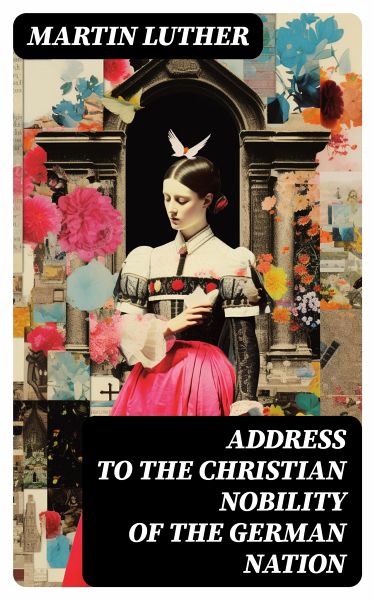
Address To the Christian Nobility of the German Nation (eBook, ePUB)
Treatise on Signature Doctrines of the Priesthood
Übersetzer: Buchheim, C. A.
Versandkostenfrei!
Sofort per Download lieferbar
0,49 €
inkl. MwSt.
Weitere Ausgaben:

PAYBACK Punkte
0 °P sammeln!
In "Address to the Christian Nobility of the German Nation," Martin Luther presents a fervent critique of the ecclesiastical and political structures of his time, advocating for a reformation of both church and state. Written in 1520, this bold treatise employs a direct and accessible vernacular style, effectively addressing the common German populace and their leaders. Luther articulates the urgent need for the nobility to take up their Christian responsibilities, challenging the corruption within the Church and calling for reforms that would empower local governance and diminish papal author...
In "Address to the Christian Nobility of the German Nation," Martin Luther presents a fervent critique of the ecclesiastical and political structures of his time, advocating for a reformation of both church and state. Written in 1520, this bold treatise employs a direct and accessible vernacular style, effectively addressing the common German populace and their leaders. Luther articulates the urgent need for the nobility to take up their Christian responsibilities, challenging the corruption within the Church and calling for reforms that would empower local governance and diminish papal authority. The pamphlet serves as a pivotal document in the larger context of the Protestant Reformation, demonstrating Luther's passionate belief in the priesthood of all believers and the importance of making spiritual authority accountable to laypersons. Martin Luther, a seminal figure in Christian history, was a theologian whose own struggles with faith and the ecclesiastical hierarchy profoundly shaped his revolutionary thoughts. His academic background and experiences as a monk led him to confront the excesses of the Catholic Church, particularly the sale of indulgences, ultimately sparking a movement that sought to return Christianity to its scriptural roots. Luther's commitment to theological reform and social justice drove him to engage with the ruling class through this address, aiming to broaden the reach of his vision for a more just and equitable church. "Address to the Christian Nobility of the German Nation" is highly recommended for readers interested in the origins of the Protestant Reformation and the intersections of faith and politics. Luther's compelling arguments resonate even today, inviting contemporary readers to reflect on issues of institutional authority and personal conscience in matters of faith. This work is essential for understanding not only the historical context of the Reformation but also the lasting implications of Luther's advocacy for a more engaged and responsible laity.
Dieser Download kann aus rechtlichen Gründen nur mit Rechnungsadresse in A, B, BG, CY, CZ, D, DK, EW, E, FIN, F, GR, H, IRL, I, LT, L, LR, M, NL, PL, P, R, S, SLO, SK ausgeliefert werden.






